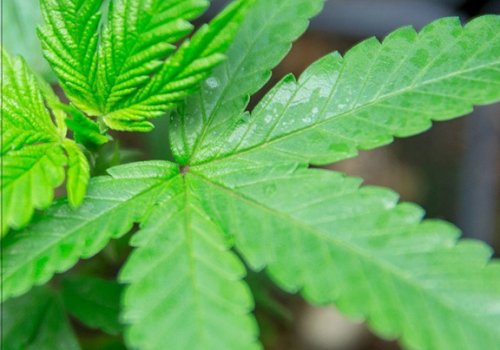
10 Sep Cultivating Wellness
Who is using CBD and why?
Despite the huge public interest in CBD products, and an endless stream of media stoking that fire, there have been limited efforts to figure out exactly how and why people are using this darling compound of the cannabis world.
In early 2019 Project CBD began collecting responses to a survey we designed to figure out who is using CBD, how and why people are using CBD, what kinds of products they are consuming, and whether or not CBD is working for them. The analysis in this report (available in its entirety at the end of this summary overview) covers an eight-month period and encompasses over 3500 responses.
The survey asked about CBD’s impact on six quality of life measurements: pain, mood, sleep, physical function, energy or motivation, and the ability to socialize. A majority of participants reported some improvement across all measures, but the most significant were in the areas of pain and mood.
Of great interest were the efficacy reports for specific conditions. The survey elicited information about 17 different conditions for which CBD is sometimes used, including:
- alcoholism/addiction
- ADD or ADHD
- Alzheimer’s disease
- autism spectrum disorder
- brain injury (e.g. stroke, TBI, tumor)
- cancer
- diabetes
- epilepsy and other seizure disorders
- gastrointestinal disease (e.g. Colitis, Crohn’s, IBS)
- depression
- anxiety and other mood disorders
- motion sickness
- pain
- Parkinson’s disease
- hormonal conditions (e.g. PMS, menopause)
- multiple sclerosis
- PTSD
- sleep problems
The survey asked what type or stage of disease the person had (e.g., type 1 or type 2 diabetes), and how they felt CBD impacted their symptoms.
This observational study validated some well-established facts about CBD – namely that it has a strong safety profile, and it is very effective at ameliorating pain and anxiety. Participants reported significant improvements in pain and mood regardless of the underlying medical condition.
That said, the study also showed that CBD is not a panacea for all that ails us. Some symptoms were decidedly less responsive to CBD products. For example, CBD was not particularly useful in helping people with gastrointestinal diseases maintain a healthy weight. Nor did it have much of an impact on PMS-related bloating, cancer-related diarrhea and constipation, or low sex drive during menopause.
Nonetheless, CBD was effective in simply making people feel better – most likely because of its positive impact on pain, mood, and sleep.
The survey also found that there were few adverse effects, which is consistent with studies showing that CBD is safe and well-tolerated even at high doses.
Examples of some noteworthy findings:
- Based on this survey, it appears that the typical CBD user is white, well-educated, over 45, female, and from the U.S. This may reflect the fact that the two most prevalent conditions for which participants reported using CBD – pain and anxiety – affect women disproportionately.
- Almost two-thirds of survey respondents were over the age of 44, and almost 20% were seniors over the age of 64. This finding may be a reflection of CBD’s popularity for treating pain and sleep problems, ailments that are most common among the elderly.
- Participants were more likely to be using CBD from hemp rather than cannabis (this is unsurprising given that the latter is still illegal in many parts of the world) and they tended to favor CBD tinctures and topicals over traditional modes of taking cannabis (smoking and edibles). They typically used CBD products multiple times per day and used more than one type of product, most often a tincture with a topical.
- Regarding dosage, few participants were able to say how much CBD (or THC) they were taking, suggesting an urgent need for both better product labeling and consumer education.
- Most participants were using CBD for more than one condition, and there was a notable clustering of certain conditions. Pain, mood issues, and sleep problems correlated closely. A significant number of participants using CBD for pain reported suffering from fibromyalgia and/or arthritis though they were not asked specifically about these conditions. There was also a notable correlation between addiction and ADD/ADHD, and addiction and PTSD; participants who were using CBD for ADD/ADHD or PTSD were three times more likely than the average participant to be using CBD for alcoholism or addiction, as well.
CannaCraft, Inc., the Santa Rosa-based cannabis company, provided support for this survey. Project CBD will make the survey data available to researchers. We hope the data generated by this survey can provide guidance for those seeking therapeutic relief and for those curious about where CBD research might lead.
And we’re not done collecting data! If you’re interested in sharing your CBD story, head to the survey and let us know how it’s been working – or not working – for you.



Sorry, the comment form is closed at this time.